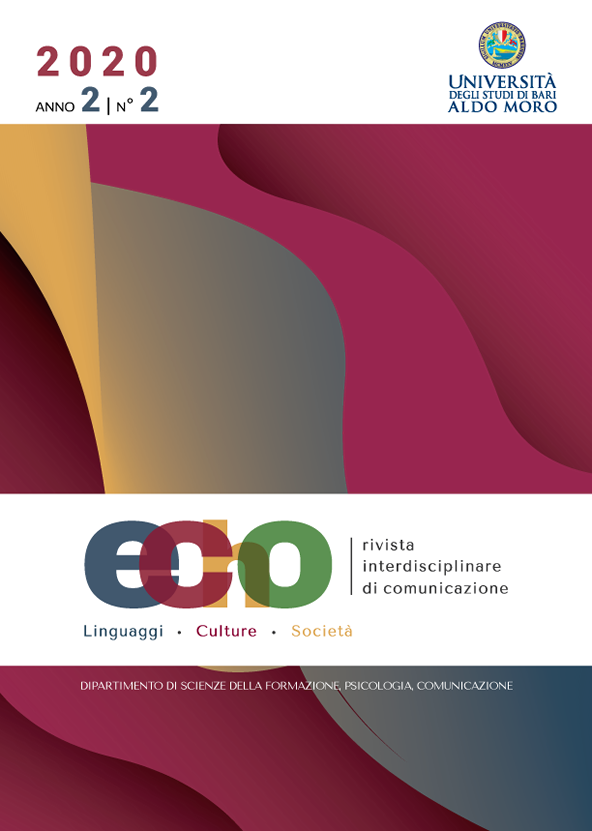Lo sguardo dell’altro: artivismo, ideologia e rappresentazione
DOI:
https://doi.org/10.15162/2704-8659/1217Parole chiave:
semiotics, critical theory, theory of art, artivism, visual anachronism, border studies, semiotica, teoria critica, teoria dell’arte, artivismo, anacronie visiveAbstract
In a global context in which society has become spectacle, everything turns into representation (Debord 1967). The phenomenon of nation-states fortification emerges in a problematic way with respect to the neoliberal capital-work relationship (Mezzadra e Nielson 2013). The need to build walls, in fact, is a mode of representation that is exploited for a strategic construction of alterity. The aim of this research is to highlight the “naturalization” of stereotyped imagery, prompted by mediatic and political discourses concerning the migratory phenomenon.
Starting from a recognition of the critical thinking of scholars such as Michel Foucault and Louis Marin, the goal of this paper is to take stock of the relationship between the concepts of ideology, representation and power in a border crossing context. By combining the theory of arts with a semiotic approach, I will focus on the specific case of the practice of artivism as counter-narratives, realized by the street artist JR on the border between Mexico and the United States. This case study is recognizable as a syncretic work developed in two phases. The first is attributable to the piece Giants. Kikito - Border Mexico (2017) that JR created after the executive order signed by Donald Trump to complete the construction of the wall; the second consists of an artistic practice which is rather recognizable as an ongoing performance: Migrants. Picnic across the border (2017). The importance of reading these two works in dialogue with each other lies in the intrinsic power of the images (Bredekamp 2010). In fact, the effects of meaning underlying the project, want to undermine the idea of the wall as a self-legitimizing object of the “natural world”. The issue of the critical construction of the gaze, that is to say of a point of view, is the key to understand the semiotic efficacy of artistic work in analyzing social discourses. Thanks to JR’s work it will be possible to reveal the construction and remodulation of the concept of otherness. The latter is in fact based on a specular principle (Stoichita 2014) whereby the encounter between two entities is both proof of the other and strengthening of the same.








